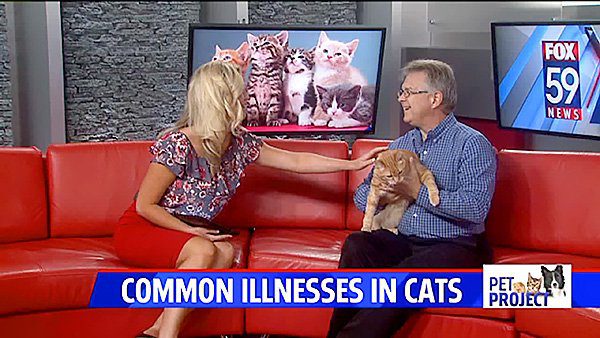James R. Speiser, DVM, DABVP, CCRT
September 6, 2017
Last month, we talked about canine influenza and how to recognize it, but cats are just as prone to getting sick as dogs, and the canine flu virus (H3N2) CAN also affect cats, giving them upper respiratory symptoms – runny eyes, runny nose, sneezing, and possible loss of appetite. In most cases, cat illnesses can be treated by your veterinarian with antibiotics or decongestants.
Another common illnesses in cats are ear infections, which can be caused by various yeasts, bacterias or ear mites all of which can be relatively easily treated with medications.
Dentistry can be a common ailment for cats. While not generally thought of as an illness, cats have some fairly unique dental issues which can be quite serious if not treated. They can develop a gum disease that produces a cavity that erodes through the tooth and into the root canal. This can be very difficult for a pet owner to see and as a result, your cat may be in pain, irritable and may not want to eat. Your Veterinarian should be able to help by extracting the problem tooth and then treating the gum disease.
Another common problem is urinary tract issues. There are actual tiny crystals in your cat’s urine, similar to sand that can irritate their bladder and urethra, leading to infections, or even obstructions in male cats which can be life threatening if not treated.
There is no flu season for dogs and cats, so you always want to be on the lookout for any changes in their health or behavior. As with dogs, respiratory symptoms are common in many illnesses that affect cats, whether common or serious, so it’s best to be safe and take them to your vet for help if you suspect they may be sick, especially if they’re older, or have other illnesses already.

